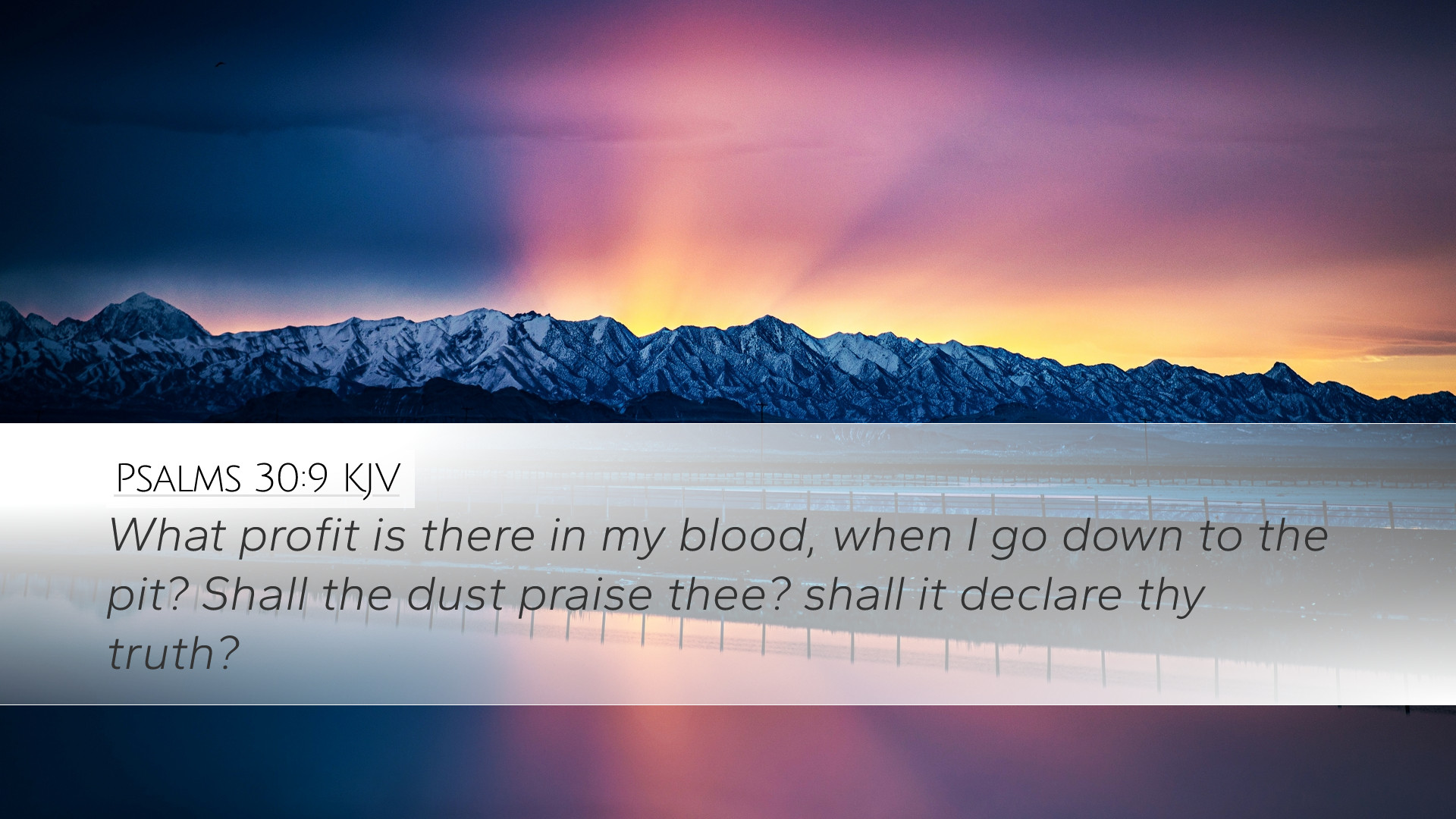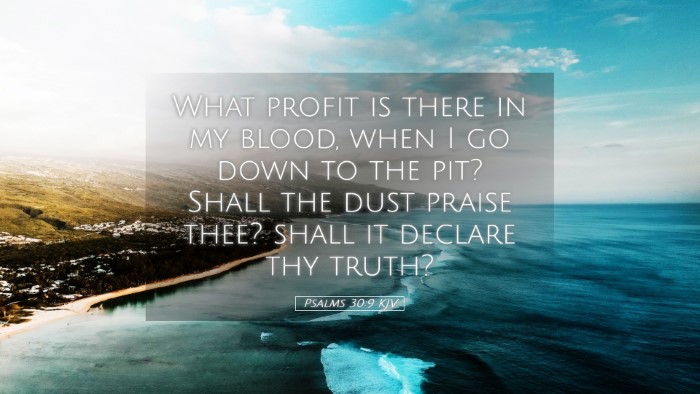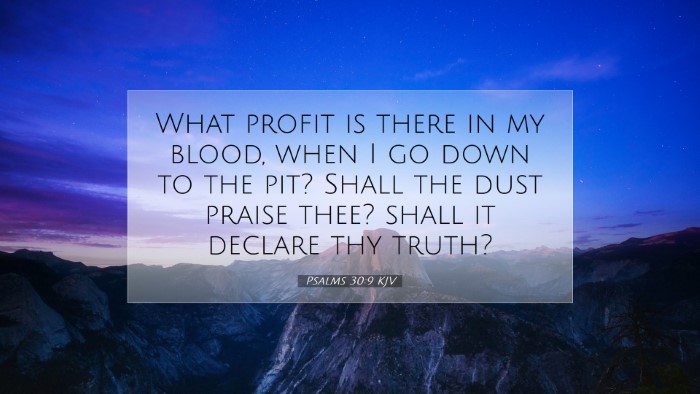Psalms 30:9 - A Commentary
Verse: “What profit is there in my blood, when I go down to the pit? Shall the dust praise thee? Shall it declare thy truth?”
Introduction
This verse from Psalm 30 expresses a poignant inquiry into the value of life and the purpose of existence in relation to God's glory. It reflects a deep theological concern regarding death, worship, and the implications of one’s life in service and honor to God. The psalmist raises crucial questions about the afterlife and the significance of life in the pursuit of divine truth.
Historical Context
The Psalms are rich in emotional expression and are often seen as prayers or songs of Israel. Psalm 30 is attributed to David and is considered a song of dedication for the temple. This psalm contrasts the greatness of God’s deliverance with the fragility of human life.
Matthew Henry's Perspective
Matthew Henry, in his commentary, emphasizes the plea of the psalmist who is reflecting on mortality and the futility of existence without divine purpose. He asserts that the psalmist recognizes that death diminishes the opportunity for praising God. The rhetorical questions posed in this verse exhibit a deep sense of despair that inspires a desire for continued life, emphasizing God’s merciful character in granting life and the ability to celebrate His goodness through praise.
Albert Barnes' Insights
Albert Barnes takes a slightly different approach, honing in on the implications of the psalmist's questions. He notes that the imagery of the “pit” signifies the grave or death, a common metaphor throughout Scripture. In his view, the psalmist is acutely aware of the loss of the capacity for verbal praise after death. He urges readers to understand the urgency of life devoted to God, as it is through vocalized worship that God's truth is declared on Earth. Barnes highlights that the concern expressed is not merely personal but universal—death, while inevitable, incapacitates the living from actively glorifying God.
Adam Clarke's Commentary
Adam Clarke provides a more exegetical approach, delving into the implications of the text's language. Clarke points out the intense emotion behind the psalmist’s inquiry about "profit" and "praise." He interprets these words as reflective of a deep consciousness of life’s brevity and the vital importance of employing life as a platform for praising God. Clarke insists that the psalmist, by questioning whether dust can praise God, acknowledges human limitations and the need for divine intervention in preserving life for God's glory.
Theological Implications
This verse brings forth significant theological reflections concerning the nature of life, death, and worship. The queries posed by the psalmist remind believers that life is a precious commodity meant for the glorification of God.
- The Nature of Worship: This verse emphasizes the believer’s responsibility to worship God actively while alive, highlighting a theological understanding that may argue the inability of the dead to worship actively.
- The Value of Life: The discussion suggests that life is inherently valuable as a vehicle for declaring God’s truth and character. This raises questions about what it means to live “for Christ” and the eternal implications that may arise.
- Hope and Despair: The rhetorical questions convey a mixture of hope intertwined with despair, encapsulating the human experience in considering mortality and divine mercy.
Practical Applications
The applications of this verse are profound for pastoral ministry and personal reflection.
- Encouragement to Praise: Pastors can encourage their congregations to engage actively in worship, emphasizing that our time is precious and should be devoted to glorifying God.
- Life Planning: Believers are motivated to consider how they use their time on Earth. Reflecting on this passage can lead to life decisions that prioritize eternal values and active service to God.
- Hope in Difficulty: In times of sickness or trials, this passage offers hope that life continues to hold value in the midst of struggle—particularly in calling out for God’s intervention.
Conclusion
Psalms 30:9 invites a contemplative journey into understanding our role in God’s creation through the lens of worship and the eternal significance of our lives. In merging the insights of Matthew Henry, Albert Barnes, and Adam Clarke, we uncover a powerful message that challenges believers to value life as a glorious opportunity to sing praises to God, recognizing the gift of life as a means to declare His truth. This passage encourages active living while engaging deeply with the reality of our mortality while relying on God’s everlasting mercy.


